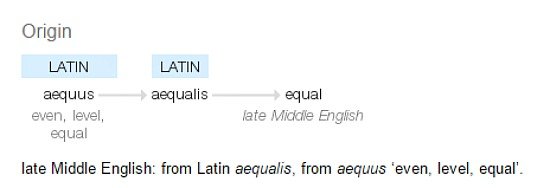
By Martin Shields
Last month I heard Thomas R. Schreiner speak at Moore Theological College on the topic of “What the Bible says about Women in Ministry.” While briefly making reference to Genesis 1–3 he made a particular point that the man’s act of naming the animals and the woman is an exercise of authority on his part, and hence demonstrates his position of authority over the animals and the woman.
Frankly I’m surprised that appeal is still made to naming in discussions about women’s roles in the church. Read on for my reasons.
The first thing to note is that while many modern scholars appeal to naming, the New Testament writers never did. Paul does appeal to the order of creation and that the woman was deceived (whatever the significance of those appeals may be), he never mentions that Adam named Eve. If naming was such an obvious and powerful demonstration of dominion, and if the NT writers sought to establish this point, surely they missed a great opportunity here?
Dominion is not fundamental to naming
The problem is that naming is not invariably a demonstration of authority. While it often does seem to express dominion over that which is named, there are some very clear examples where naming clearly does not express dominion.
The first is the most potent. In Gen 16:13 we read the following:
ותקרא שם יהוה הדבר אליה אתה אל ראיThen [Hagar] named Yhwh who had spoken to her, “You are El-Roi…”
Here Hagar names Yhwh. If naming invariably expresses dominion, then Hagar would here be claiming dominion over Yhwh. The text, however, does not view Hagar’s actions negatively.1
Let me give one other example. Following Solomon’s birth Yhwh sends Nathan the prophet to speak:
וישלח ביד נתן הנביא ויקרא את שמו ידידיה בעבור יהוהThen [Yhwh] sent a message through Nathan the prophet and he named [Solomon] ‘Jedidiah’ for Yhwh’s sake.
Despite Yhwh’s naming the child here, Solomon is never again referred to by this name. If naming invariably expresses dominion then what does it mean that the name chosen by Yhwh is ignored in favour of that chosen by David?
Naming is fundamentally an act of character recognition
As it turns out, however, there is a fundamental feature of naming in the Bible and the ancient Near East. It is not dominion but character recognition. This is apparent in that names virtually always reflect something of the character of that which is being named, or at least it expresses some hopes about the character of that being named. We see this with Noah in Gen 5:29:
ויקרא את שמו נח לאמר זה ינחמנו ממעשנו ומעצבון ידינוThen he named him ‘Noah’, saying “This one will bring us comfort from our work and the toil of our hands…”
The same is evident in many, many other examples of naming.
Why this makes best sense of Genesis 2
This actually makes very good sense of Genesis 2:18–25. The naming takes place immediately after Yhwh identifies a problem: “It is not good that the man is alone. I will make a suitable companion for him.”
Yhwh then proceeds to form all the animals from the ground — in much the same way he had formed the man — and brings them to the man so he can name them. While this could be read as an exercise of authority and fulfilment of Gen 1, it seems odd to find a problem with creation and then delay resolving the problem while doing something largely irrelevant to the problem!
But understood as an act of character recognition, the naming of the animals becomes an integral part of the narrative as an attempt to resolve the problem. The man examines each animal to determine whether it would be a suitable companion. And the task fails as noted in verse 20: “but for the man no suitable companion was found.” It is clear that the naming was all about finding a companion. And it failed.
That it failed is not a slight on Yhwh’s abilities, it is clearly didactic. While a dog may be said to be “man’s best friend,” Genesis 2 makes it clear that a dog cannot replace human companionship. There is only one suitable companion for a man, a woman, and (I have argued), vice-versa. The man (and hopefully the reader) learns this from the failure of the close examination of all the animals Yhwh created.
When the woman is then built from the side of the man and presented to the man, he also names her, and in that act he recognises the long desired missing element in creation: his other half. His words express an awareness of her character, they are not an expression of his dominion over her. After all, in Gen 1 it was man and woman who together shared dominion over the animals, there was nothing there to suggest that man would have dominion over woman.
Furthermore, just because the idea of dominion is introduced in Gen 1 does not mean that all that takes place in Gen 2–3 must give expression to that dominion!
So what’s in a name?
Hopefully it is now clear that the primary function of naming in Gen 2:18–25 is that it represents the act of closely examining the characteristic features of that which is named. This aspect of naming is prominent throughout the Bible, where names reflect something of the character of the named. If naming in Gen 2:18–25 is understood primarily as an expression of dominion it makes the naming episode a largely irrelevant aside to the immediate narrative. If naming reflects a close examination of the character of that which is named, these verses become an integral part of the search for the missing element in creation.
In short, appeals to the first man’s naming of the woman to support the notion that there is a hierarchical relationship between men and women misreads Genesis 2 and is based on a flawed presupposition about the significance of naming.
________________
Notes:
- Likewise naming elsewhere in the ancient Near East fails to express dominion in all cases. For example, on tablet V of Enūma Eliš we read that the gods assigned a name to Marduk:
(95) Then the great gods convened,
They made Marduk’s destiny highest, they prostrated themselves.
They laid upon themselves a curse (if they broke the oath),
With water and oil they swore, they touched their throats.
They granted him exercise of kingship over the gods,
(100) They established him forever for lordship of heaven and earth.
Anshar gave him an additional name, Asalluhi,
“When he speaks, we shall all do obeisance,
At his command the gods shall pay heed.”See COS I, p. 401. Here the gods are clearly not claiming dominion over Marduk since Anshar affirms their subordinate status immediately after naming him! In the Standard Babylonian version of the Anzu story there is a record of all the names given to Ninurta in different places. Given that the deity is being named it is again unlikely that there is any hint of dominion over that which is being named.
References:
Ramsey, G. W., “Is Name-Giving an Act of Dominion in Genesis 2–3 and Elsewhere?” CBQ 50.1 (Jan. 1988), 24–35.
Shields, Martin A., Man and Woman in Genesis 1–3, M.Th.(hons) Dissertation, Sydney College of Divinity (1995), chapter 4.
© 5th of June 2016, Martin A. Shields
This article first appeared on “Shields-Up” here.



